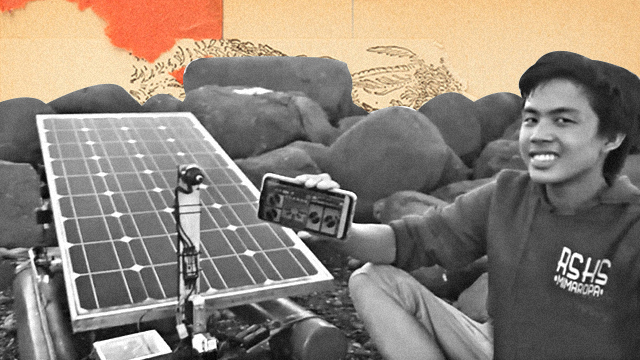
(SPOT.ph) Here's a much-needed bright spot for 2020: An 18-year-old student from Oriental Mindoro has developed a truly ingenious device to help clean up oil spills using dried patola and coconut fibers, and the best part? It's sustainably powered through a solar cell. Franklin Razon invented the cool device in response to his community's needs—and is just one of the cool community-driven works celebrated during the Gokongwei Brothers Foundation's Young Scientist Awards virtual ceremony held on November 27.
A total of 12 students from across the Philippines were recognized for their outstanding research and innovations, with the awarding meant to shed even more light on their works. These "champions of change," as Lisa Gokongwei-Cheng, the foundation's general manager referred to them, had studies that earned the top awards in the Department of Education’s National Science and Technology Fair and went on to carry the Philippine flag in the International Science and Engineering Fair this 2020.
"We at the Gokongwei Brothers Foundation are firm believers that strengthening our STEM education is the driving force for maintaining sustainable national development, which means Filipinos innovating and establishing new Filipino business," said Gokongwei-Cheng during the progarm. The foundation's main goal is to help in "creating lasting solutions for pressing problems in our country." And with innovation and sustainability as the key elements, it is clear that this year's batch of awardees have created some truly game-changing studies.
Also read:
These Filipino Students' Projects Show How Science Can Uplift Communities
Check out all the awe-inspiring inventions by young Pinoy scientists:
A portable device that detects mercury and lead in water.

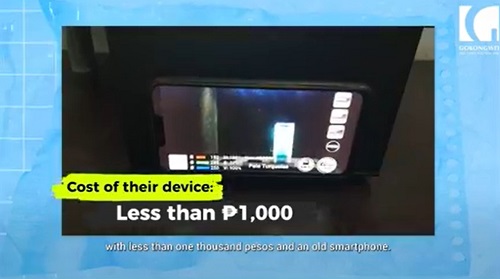
A study by Marvince Araneta and Lorraine Joy Bales of Iloilo National High School has resulted in a very important device that would help ensure water purity in a more affordable manner. The two created their study as a response to questionable water quality in their communities, and the high cost of testing said water. Their prototype won the highest award at the Department of Education’s National Science and Technology Fair (DepEd's NSTF) for Physical Science Team Category.
A study on the potential of nipa palm sap to battle cancer development.
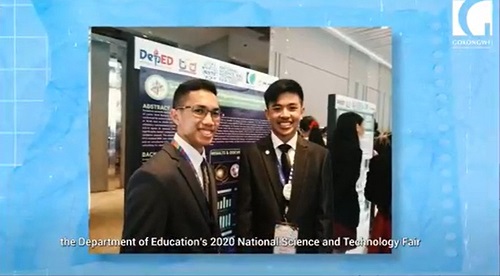
The often-overlooked nipa palm is at the center of Ray Vincent Pelayo and Gerardo Rafael Tallador's study. Also from Iloilo National High School, they looked into the palm's sap as a potential source of lactic acid bacteria and its protective properties against the development of cancer and other degenerative diseases. The study was given the top award for Life Science Team Category at DepEd's NSTF. Plus, both research teams for the anti-cancer study and the portable water testing device were mentored by Dr. Ronilo V. Aponte.
A new way to purify water
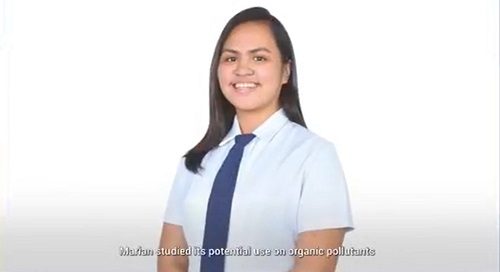
Marian Ledesma of Negros Occidental National Science High School took a magnetic nano-adsorbent from graphite (which means that rather than taking in a piece of material, it will merely make it stick to it) called EDTA-MgO and used it to remove organic pollutants from water. The deceptively simple-looking way to purify water won her the top award in the DepEd NSTF 2020 Physical Science Individual Category.
An ultra-smart helmet for motorists.
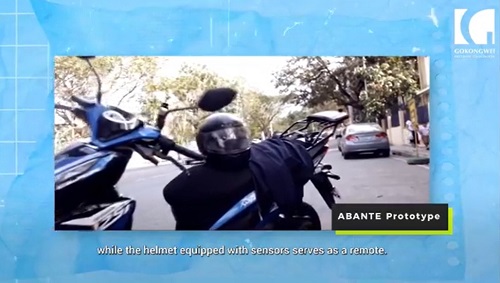
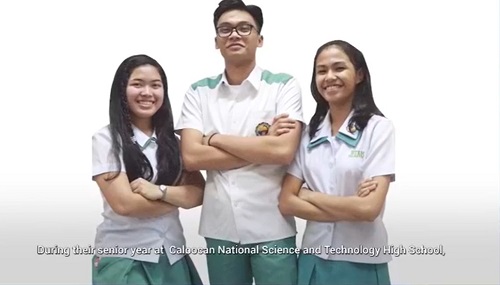
Three students from the Caloocan National Science and Technology High School, Adoniram Balagtas, Chloe Heather Ellano, and Thea Marie Lumabi, created a genius helmet for motorcycle riders. Their prototype is an anti-theft, alcohol and collision-sensing helmet that uses the open-source Arduino software. They were given the top award for the Intelligent Machines Team Category at the NSTF.
A plant that could help deter alcoholism.
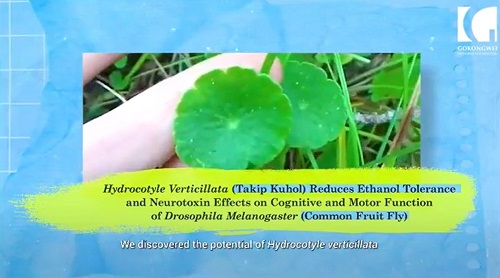
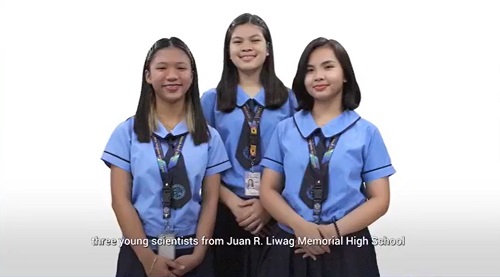
With the holidays coming up, you may want to keep watch on this one. Arabelle Santos, Jesscel Mae Libiran, and Giuliana Anupol of Juan R. Liwag Memorial High School in Gapan City, Nueva Ecija, have found that the takip-kuhol plant—basically a weed that grows everywhere in their area—could reduce alcohol dependency and mitigate its effects. Their study had them use fruit flies as a subject and won the top Life Science Team Category award at the NSTF.
A solar-powered device to help clean up oil spills using local fibers
And back to Razon! The student from Bansud National High School – Regional Science High School for MIMAROPA won the top award in NSTF's Robotics and Intelligent Machines Individual Category. The cool floating device can be controlled via smartphone and bluetooth and can retrieve around a liter of oil per trip. With a scarcity of materials, he was able to reuse old PVC pipes to make the device float.
Razon made the study alone—shouldering practically all the expenses (with his supportive parents and school) and of course, the mental and physical struggles—but once his device really started to shape up, "the feeling [was] very unexplainable, like [being] on cloud nine. Despite the challenges, you get through all of it and you succeed," he said during the GBF awarding.
What drives these young Pinoy scientists?
Perhaps the coolest thing about all these studies and prototypes developed is that they were all made by Filipinos no older than 20 years of age. Each of them are well aware of the challenges STEM education has today—and even more so of its benefits.
"What's so special about research, you might ask?" said Bales of Iloilo National High School during her speech for the GBF program. And to put it very simply, "We do research in hopes of helping our communities by providing tangible solutions to existing problems," she said. Each of the studies awarded were inspired by a need that the students saw in their own communities, a need they worked hard to help solve.
"The world needs STEM-inclined people now more than ever," continued Bales, pointing out the many challenges we face today—including Internet connectivity problems—and called on students and folks everywhere, that like her, could make a positive impact. "We can make a significant contribution to this world through science—and research."
[ArticleReco:{"articles":["74809","84464","84456","84439"], "widget":"Hot Stories You Might Have Missed"}]
Hey, Spotters! Check us out on Viber to join our Community and subscribe to our Chatbot.
Source: Spot PH
No comments:
Post a Comment